Health
/ArcaMax

He's played Scrabble since he was 5. How he became a national champ
LEXINGTON, Ky. -- Mack Meller strolled into the Sedona Taphouse with a brown leather briefcase.
It had been a while since the 25-year-old joined the weekly gathering of the Lexington Scrabble club. Travel had taken up most of his time recently, but on a recent Sunday, Meller walked right into the restaurant, sat down, and began playing like he ...Read more

In a digital age, old-fashioned watchmaking schools, including a new one from Rolex, are in demand
Ever since watches began bringing order to the ephemeral passage of time, they also started doing something else: breaking.
Own one long enough and something will probably go wrong. It'll run slow. Or fast. Or stop altogether.
Decades ago, watch repair shops across the country were staffed with technicians who could service almost any ...Read more

Ask Dating Coach Erika: How do I not lose hope that I'll find the right person?
I understand how frustrating dating can feel sometimes, especially when you feel like you’ve been putting yourself out there over and over again. Feelings of frustration are valid.
My first question is this: Are you putting yourself out there in a productive way? Are you on two dating sites? (My recommendation is two, and if that feels ...Read more

As last baby boomers reach retirement, they tackle a quest for fulfillment
CHICAGO -- Forty-two stories above ground, Jon Gottlieb traced his bicycle route. From his vantage point by the pool, on his building’s roof, he could see the stop sign where he turns right, the road he hates crossing, the park he rides through and the tunnel that leads to the Lakefront Trail bike path.
Gottlieb, 75, rode this route at least ...Read more

LA hip-hop Jedi training camp mentors the producers of tomorrow
LOS ANGELES — On a recent Saturday in Inglewood, about a dozen acclaimed music producers including Dahi — who's worked with the likes of Kendrick Lamar, J. Cole and Drake — and DJ Khalil — who has collaborated with artists like Dr. Dre, Kanye West and Eminem — gathered with 80 students to geek out on the art of beat making.
The free ...Read more

Science is often inaccessible. This program is teaching scientists to communicate through art
PHILADELPHIA -- Christina Simms wouldn’t call herself an artist.
The Howard University student was a budding scientist visiting to do research at the Children’s Hospital of Philadelphia. Her main objective was to do lab work.
Yet as her summer internship entered its final weeks, she faced the daunting task of creating a piece of artwork ...Read more

The Magic Castle's training program for kid magicians is like a real-life Hogwarts
LOS ANGELES — Anja Steyn has three disparate loves: puzzles, horror movies and magic.
And during her show at the Magic Castle two weeks ago, she not only predicted the horror film someone was thinking of — she produced an almost-finished puzzle of the movie poster, with the last piece in the unsuspecting audience member's possession.
"Some...Read more
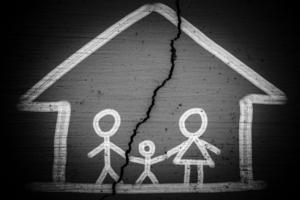
Ex-etiquette: Don't crash the party
Q. I must admit, the transition from being a couple to being single has been difficult to juggle. I’m not always angry and sometimes I think it might be cool to hang out with my ex. So, when he had the kids this weekend I showed up on Sunday and asked if they all wanted to go to breakfast. The kids were very excited and wanted to go, but their...Read more

Lori Borgman: Water tumblers salute Gulp of America
Hydration has officially become the cure for whatever ails us.
Feeling sluggish? Hydrate! Dry skin? Hydrate! Joints hurt? Hydrate! High blood pressure? Hydrate! Ingrown toenail? Hydrate! Don’t know what to make for dinner? Hydrate!
To join the wave of adequate hydration, one of our daughters thoughtfully gifted me with a pink XXL insulated ...Read more

The queens of pickleball
ATLANTA — A silver medal in Macon, a gold in Griffin — Atlanta resident Suzanne Ockleberry has a passion for pickleball. It’s not trophies she’s after though. She’s forging friendships one serve at a time.
The New Jersey native has turned her love for the game into a rapidly growing community, called the Atlanta Pickleball Queens, now...Read more

The Kid Whisperer: Parents should take away their kids' tablets and not give them back
Dear Kid Whisperer,
I’m struggling with my kids using their tablets so much. How much should I allow them to use them? I feel like they’re always on them, and that my wife and I don’t talk to our kids much anymore.
Answer: I was recently on a cruise ship that stopped at a private island. Thousands of my fellow cruise-goers, my family and...Read more
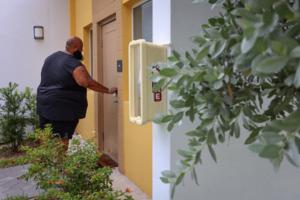
Faith-based affordable housing. How religious groups are helping ease Miami's housing crisis
MIAMI -- The past two years have been rough for Christopher Saunders.
Saunders, originally from Ohio, moved to North Miami Beach in 2023 seeking a warmer climate to relieve his arthritis. Things were going fine, until costly car and rental bills forced him into chapter 13 bankruptcy. Around the same time, the rent on the 43-year-old’s less-...Read more
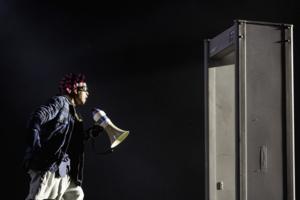
Got 30 pounds of unused fresh spinach? Musically Fed nonprofit works with Lollapalooza to reduce food waste
CHICAGO -- While festivalgoers swarmed Chicago's Grant Park over four days at Lollapalooza and artists graced the stages, caterers behind the scenes set up their extensive lineup of gourmet VIP meals to feed the performers and their crews each day.
But a lot of that food goes to waste, said Maria Brunner, founder of Musically Fed, a national ...Read more

Jerry Zezima: Between a rock and a good place
With apologies to Mick Jagger, my kidneys have produced more rolling stones than he’s ever had. That’s why I got satisfaction from a radiology report showing that my career as a rock star could mercifully be over.
On orders from my urologist, who must feel like a miner because he has excavated more than half a dozen stones from my kidneys ...Read more

'The people over the art form': Creating community through Shakespeare at the Park
LEXINGTON, Ky. -- Treyton Blackburn always thought he wanted to be a director.
Growing up in Pikeville, Kentucky, he was involved with community theater, mainly as an actor. He studied theater at the University of Kentucky, where he got into directing through the department’s student-led theater department.
“I was always curious about ...Read more

He was shot in St. Louis as a boy. He became a star college student and a role model
ST. LOUIS — Jordan Hughes strode to the lectern and looked around.
The eyes of hundreds of his fellow St. Louis Community College graduates were on him. He’d been practicing his valedictory address for weeks, but it still felt unreal.
“If you had told me five years ago that I could be the commencement speaker today, I probably would have...Read more
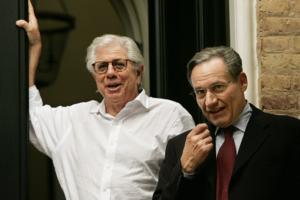
Heidi Stevens: When newsrooms shrink, so does our capacity to know and understand one another
In my son’s high school journalism class a few months ago, the teacher introduced them to “All The President’s Men,” the Oscar-winning film about Watergate, based on the explosive book by Bob Woodward and Carl Bernstein, the Washington Post reporters who took down President Richard Nixon and forever changed American history and ...Read more

Two babies' skulls found at museum linked to murder mystery from 1980
PHILADELPHIA -- On a Friday last November, staff at the Mütter Museum in Philadelphia were in the midst of conducting an audit of the medical history museum’s collection of some 6,600 human remains when they found a box in the library stacks of their Center City building.
The tag on it read, “Two mummified infant heads,” said Erin ...Read more

Sales tax holidays can save you money on back-to-school shopping -- or on new clothes or a laptop for yourself
Summer is winding down, and it’s almost time for back-to-school shopping. If your state offers a sales tax holiday — fewer than 20 states do this year — you might be able to give your wallet a bit of a break.
And that’s true whether or not you have children: These sales-tax holidays can be a good time to buy new clothes, a computer or ...Read more
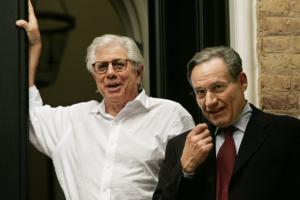
Heidi Stevens: When newsrooms shrink, so does our capacity to know and understand one another
In my son’s high school journalism class a few months ago, the teacher introduced them to “All The President’s Men,” the Oscar-winning film about Watergate, based on the explosive book by Bob Woodward and Carl Bernstein, the Washington Post reporters who took down President Richard Nixon and forever changed American history and ...Read more
Popular Stories
- The Kid Whisperer: Parents should take away their kids' tablets and not give them back
- A liberal Florida activist is packing up for Canada. Here's why
- Science is often inaccessible. This program is teaching scientists to communicate through art
- Got 30 pounds of unused fresh spinach? Musically Fed nonprofit works with Lollapalooza to reduce food waste
- 'The people over the art form': Creating community through Shakespeare at the Park






















